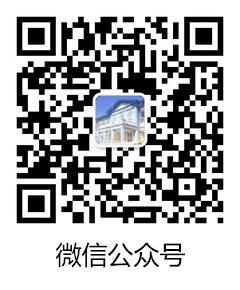Seoul's risky gamble leaning on Washington
South Korean President Yoon Suk-yeol embarked on a state visit to the US starting on Monday. The previous South Korean president to visit the White House as a state guest was Lee Myung-bak, 12 years ago. Yet the Yoon administration's wishful strategic ingratiation with the US may result in more hype than substance, and may also pose a major hidden danger to South Korea's national interests.
The Yoon administration has faithfully displayed the conservative "pro-US" stance. Not only has it enhanced the alliance, but it has also actively sought to improve relations with Japan as expected by the US, laying the groundwork for this visit to the US.
Perhaps President Yoon felt that "showing loyalty" was not enough, as he not only hinted at the possibility of providing military aid to Ukraine, but also made inappropriate remarks on the Taiwan question, triggering strong reactions from China and Russia.
South Korea aims to become a "hub nation" globally, but this "major power diplomacy" that runs through the "pro-US and pro-Japan" line has not translated into actual achievements. Analysis suggested that the Yoon administration failed to respond adequately to the US spying on South Korea.
Yoon is eager to achieve diplomatic results through this visit to the US, and boost public support. During this visit, Yoon has arranged a series of rich itineraries, with the highlight being his meeting with US President Joe Biden on Wednesday and his speech at the US Congress the following day. In addition, a series of interactions and visits with the US military, business, and academic communities were also arranged. There will be three main highlights of this visit:
First, what will be the economic achievements of this diplomatic trip? South Korea hopes to expand its exports to the US and attract investment through the president's visit.
However, the US is unlikely to provide South Korean companies additional bonuses in terms of semiconductor chips and electric vehicle subsidies, which yet are of great concern to South Korean. According to the Financial Times, the US has asked South Korea to urge its chipmakers not to fill any market gap in China if Beijing bans memory chipmaker Micron Technology from selling chips. The news came exactly ahead of Yoon's visit.
Another issue is the positioning of the South Korea-US alliance. This year marks the 70th anniversary of the alliance, so it is conceivable that the two leaders will reaffirm the importance of the alliance and give the bilateral relationship a higher positioning during their talks. During his trip, Yoon will visit the Korean War Veterans Memorial, exchange views with the high-level US military officials, and give an address at Harvard University, highlighting the "honeymoon relationship" of the alliance.
But in an era of increasingly fierce great power competition and geopolitical games, the re-tightening of the unbalanced Washington-Seoul alliance is not so much a result of US pressure but South Korea's abandonment of its balancing strategy and catering to the US strategic needs. The weak stance of South Korea in response to the US spying shows that its one-sided strategic shift toward the US will only solidify their "master-servant" alliance.
Third, the situation and policy on the Korean Peninsula is still a major issue. South Korea is highlighting its tough and hostile stance toward North Korea under the excuse of responding to North Korea's nuclear missile threat, hoping to reach a concrete action plan with the US on the issue of extended deterrence, and even seeking to follow NATO's lead in promoting "nuclear sharing." This is likely to intensify the conflict between North Korea, South Korea and the US, thus causing serious threat to the future trajectory on the peninsula.
It is predictable that Yoon's seemingly intimate visit to the US will not be the panacea for South Korean diplomatic problems, especially its security dilemma. The conservatives in South Korea seem to be losing their awareness of the country's unique geopolitical situation in the midst of their inflated great power mentality. The country's traditional "four power diplomacy" toward China, the US, Russia and Japan is essentially a way for South Korea to maximize its own interests through balanced relations with major powers, which reflects a kind of rational diplomatic wisdom. Nonetheless, South Korea, by following the US toward the new Cold War, is being caught up in the "power game" of confrontation between camps.
As a country with limited scale, South Korea is incapable of leaning on the US against China and Russia, nor is it necessary to please the US at the expense of other countries' interests. The "one-sided" foreign policy of South Korea toward the US is more like a desperate and dangerous gamble that will eventually hamper South Korea's diplomatic leeway and backfire on its own interests in the long run.
(Xiang Haoyu is a specially appointed research fellow in the Department for Asia-Pacific Studies, China Institute of International Studies; Source: Global Times, April 24, 2023)












